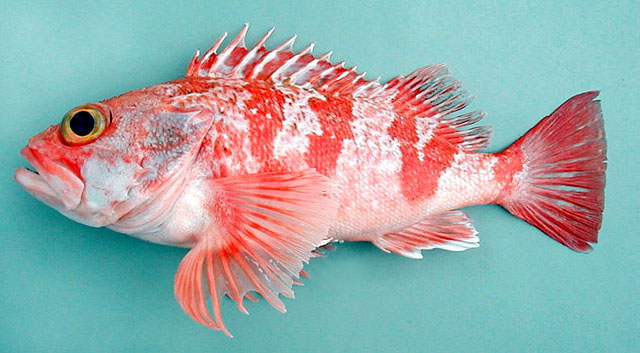| Sebastidae (Rockfishes, rockcods and thornyheads), subfamily: Sebastinae |
| 50 cm TL (male/unsexed); max.weight: 1,550.0 g; max. reported age: 43 years |
|
bathydemersal; depth range 50 - 1100 m |
| Western Atlantic: Nova Scotia, Canada to Venezuela. Eastern Atlantic: Iceland (Ref. 12462) and Norway to the Mediterranean and the Gulf of Guinea, including Madeira, the Azores, and the Canary Islands; also Walvis Bay, Namibia to Natal, South Africa (Ref. 4313). |
|
Dorsal spines (total): 12-12; Dorsal soft rays (total): 12-13; Anal spines: 3-3; Anal soft rays: 5-5. Pinkish with faint dusky bars; Y-shaped dark bar between soft dorsal and anal fins (Ref. 4313). |
| Adults are found in soft bottom areas of the continental shelf and upper slope. They feed on both benthic and pelagic organisms (crustaceans, fishes, cephalopods, and echinoderms) (Ref. 4570). The reproductive mode is a zygoparous form of oviparity, intermediate between oviparity and viviparity (Ref. 36265, 79712). Larvae and juveniles are pelagic (Ref. 4570). Anterolateral glandular grooves with venom gland (Ref. 57406). Sold fresh (Ref. 27121). |
|
(Ref. 96402)
|
| venomous |
|
Source and more info: www.fishbase.org. For personal, classroom, and other internal use only. Not for publication.
Page created by Jen, 05.08.02,
php script by kbanasihan 06/09/2010 ,
last modified by
dsantos, 20/08/10

